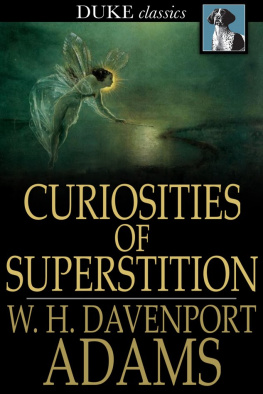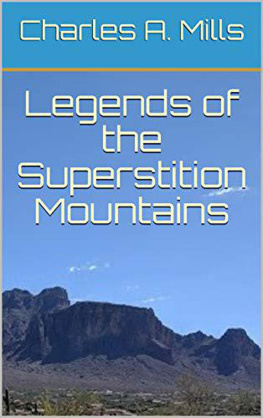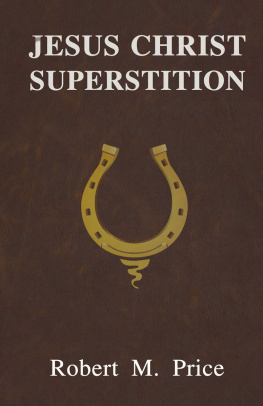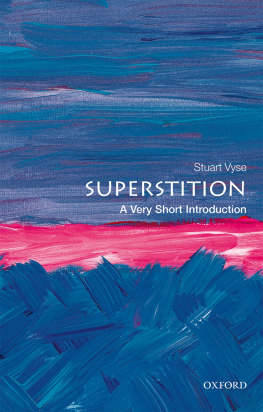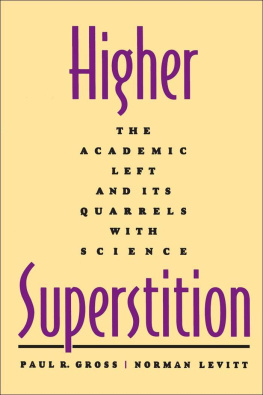Larken Rose - The Most Dangerous Superstition
Here you can read online Larken Rose - The Most Dangerous Superstition full text of the book (entire story) in english for free. Download pdf and epub, get meaning, cover and reviews about this ebook. year: 2011, publisher: Iron Web Publications, genre: Science. Description of the work, (preface) as well as reviews are available. Best literature library LitArk.com created for fans of good reading and offers a wide selection of genres:
Romance novel
Science fiction
Adventure
Detective
Science
History
Home and family
Prose
Art
Politics
Computer
Non-fiction
Religion
Business
Children
Humor
Choose a favorite category and find really read worthwhile books. Enjoy immersion in the world of imagination, feel the emotions of the characters or learn something new for yourself, make an fascinating discovery.

- Book:The Most Dangerous Superstition
- Author:
- Publisher:Iron Web Publications
- Genre:
- Year:2011
- Rating:4 / 5
- Favourites:Add to favourites
- Your mark:
- 80
- 1
- 2
- 3
- 4
- 5
The Most Dangerous Superstition: summary, description and annotation
We offer to read an annotation, description, summary or preface (depends on what the author of the book "The Most Dangerous Superstition" wrote himself). If you haven't found the necessary information about the book — write in the comments, we will try to find it.
The Most Dangerous Superstition — read online for free the complete book (whole text) full work
Below is the text of the book, divided by pages. System saving the place of the last page read, allows you to conveniently read the book "The Most Dangerous Superstition" online for free, without having to search again every time where you left off. Put a bookmark, and you can go to the page where you finished reading at any time.
Font size:
Interval:
Bookmark:

THE MOST DANGEROUS SUPERSTITION
Larken Rose
2011, Larken Rose
Preparing the Reader
What you read in this book will, in all likelihood, go directly against what you have been taught by your parents and your teachers, what you have been told by the churches, the media and the government, and much of what you, your family and your friends have always believed. Nonetheless, it is the truth, as you will see if you allow yourself to consider the issue objectively. Not only is it the truth, it also may be the most important truth you will ever hear.
More and more people are discovering this truth, but to do so, it is necessary to look past many preconceived assumptions and deeply ingrained superstitions, to set aside ones life-long indoctrination, and to examine some new ideas fairly and honestly. If you do this, you will experience a dramatic change in how you view the world. It will almost certainly feel uncomfortable at first, but in the long run it will be well worth the effort.
And if enough people choose to see this truth, and embrace it, not only will it drastically change the way those people see the world; it will drastically change the world itself, for the better.
But if such a simple truth could change the world, wouldnt we all already know about it, and wouldnt we have put it into practice long ago? If humans were purely a race of thinking, objective beings, yes. But history shows that most human beings would literally rather die than objectively reconsider the belief systems they were brought up in. The average man who reads in the newspaper about war, oppression and injustice will wonder why such pain and suffering exists, and will wish for it to end. However, if it is suggested to rum that his own beliefs are contributing to the misery, he will almost certainly dismiss such a suggestion without a second thought, and may even attack the one making the suggestion.
So, reader, if your beliefs and superstitions many of which you did not choose for yourself, but merely inherited as unquestioned hand-me-down beliefs matter to you more than truth and justice, then please stop reading now and give this book to someone else. If, on the other hand, you are willing to question some of your long-held, preconceived notions if doing so might reduce the suffering of others, then read this book. And then give it to someone else.
Starting with the Punch Line
How many millions have gazed upon the brutal horrors of history, with its countless examples of mans inhumanity to man, and wondered aloud how such things could happen? The truth is, most people wouldnt want to know how it happens, because they themselves are religiously attached to the very belief that makes it possible. The vast majority of suffering and injustice in the world, today and spanning back thousands of years, can be directly attributed to a single idea. It is not greed or hatred, or any of the other emotions or ideas that are usually blamed for the evils of society. Instead, most of the violence, theft, assault and murder in the world is the result of a mere superstition a belief which, though almost universally held, runs contrary to all evidence and reason (though, of course, those who hold the belief do not see it that way). The punch line of this book is easy to express, albeit difficult for most people to accept, or even to calmly and rationally contemplate:
The belief in authority, which includes all belief in government, is irrational and self-contradictory; it is contrary to civilization and morality, and constitutes the most dangerous, destructive superstition that has ever existed. Rather than being a force for order and justice, the belief in authority is the arch-enemy of humanity.
Of course, nearly everyone is raised to believe the exact opposite: that obedience to authority is a virtue (at least in most cases), that respecting and complying with the laws of government is what makes us civilized, and that disrespect for authority leads only to chaos and violence. In fact, people have been so thoroughly trained to associate obedience with being good that attacking the concept of authority will sound, to most people, like suggesting that there is no such thing as right and wrong, no need to abide by any standards of behavior, no need to have any morals at all. That is not what is being advocated here quite the opposite.
Indeed, the reason the myth of authority needs to be demolished is precisely because there is such a thing as right and wrong, it does matter how people treat each other, and people should always strive to live moral lives. Despite the constant authoritarian propaganda claiming otherwise, having respect for authority and having respect for humanity are mutually exclusive and diametrically opposed. The reason to have no respect for the myth of authority is so that we can have respect for humanity and justice.
There is a harsh contrast between what we are taught is the purpose of authority (to create a peaceful, civilized society) and the real-world results of authority in action.
Flip through any history book and you will see that most of the injustice and destruction that has occurred throughout the world was not the result of people breaking the law, but rather the result of people obeying and enforcing the laws of various governments. The evils that have been committed in spite of authority are trivial compared to the evils that have been committed in the name of authority.
Nevertheless, children are still taught that peace and justice come from authoritarian control and that, despite the flagrant evils committed by authoritarian regimes around the world throughout history, they are still morally obligated to respect and obey the current government of their own country, They are taught that doing as youre told is synonymous with being a good person, and that playing by the rules is synonymous with doing the right thing. On the contrary, being a moral person requires taking on the personal responsibility of judging right from wrong and following ones own conscience, the opposite of respecting and obeying authority.
The reason it is so important that people understand this fact is that the primary danger posed by the myth of authority is to be found not in the minds of the controllers in government but in the minds of those being controlled, One nasty individual who loves to dominate others is a trivial threat to humanity unless a lot of other people view such domination as legitimate because it is achieved via the laws of government. The twisted mind of Adolf Hitler, by itself, posed little or no threat to humanity. It was the millions of people who viewed Hitler as authority, and thus felt obligated to obey his commands and carry out his orders, who actually caused the damage done by the Third
Reich. In other words, the problem is not that evil people believe in authority; the problem is that basically good people believe in authority, and as a result, end up advocating and even committing acts of aggression, injustice and oppression, even murder.
The average statist (one who believes in government), while lamenting all the ways in which authority has been used as a tool for evil, even in his own country, will still insist that it is possible for government to be a force for good, and still imagine that authority can and must provide the path to peace and justice.
People falsely assume that many of the useful and legitimate things that benefit human society require the existence of government. It is good, for example, for people to organize for mutual defense, to work together to achieve common goals, to find ways to cooperate and get along peacefully, to come up with agreements and plans that better allow human beings to exist and thrive in a mutually beneficial and non-violent state of civilization, But that is
Next pageFont size:
Interval:
Bookmark:
Similar books «The Most Dangerous Superstition»
Look at similar books to The Most Dangerous Superstition. We have selected literature similar in name and meaning in the hope of providing readers with more options to find new, interesting, not yet read works.
Discussion, reviews of the book The Most Dangerous Superstition and just readers' own opinions. Leave your comments, write what you think about the work, its meaning or the main characters. Specify what exactly you liked and what you didn't like, and why you think so.



